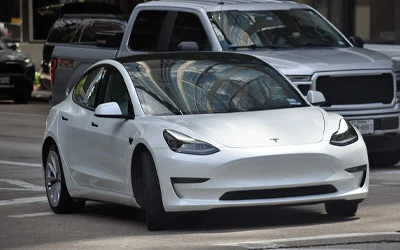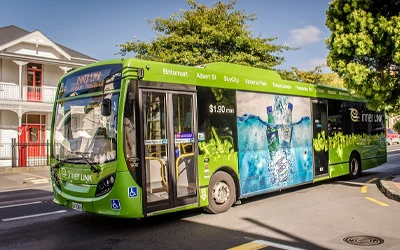Automotive Battery Management System Board - The “Brain” of an Electric Vehicle Battery Pack
What Can Our Automotive Battery Management System Do?
With our expertise in BMS board manufacturing, we optimize energy utilization, expand range, and increase efficiency to meet a wide range of automotive needs.

Battery protection
Prevents the battery from operating outside its safe operating area, which can lead to damage or even safety hazards.

Battery monitoring
By evaluatinging the state of charge (SoC) and state of health (SoH) of the Battery pack during discharging and charging.

Battery optimization
Improved battery life and capacity due to battery balance, which optimizes the driving range of hybrid (HEV), plug-in (PHEV) and fully electric vehicles (BEV).
MOKOEnergy’s automotive battery management system solutions are specifically designed to meet demanding design requirements. Based on the new highly integrated battery management IC and its accompanying isolated transceiver, our solution provides the highest precision measurement of up to 70 series cells in a single or two-way Daisy chain configuration, embedded with sophisticated battery monitoring and diagnostic capabilities. Its microcontrollers can connect to multiple LIN, CAN, UART, control multiple PWM outputs and RS-485 buses. Our lithium-ion automotive battery management systems also meet stringent Automotive Safety Integrity Level (ASIL) D requirements. Together with our family of 32-bit automotive MCUS, power management and system foundation ics, smart switches, various protection devices and automotive EEPROMs for data, we offer a comprehensive and flexible solution to support your automotive grade battery management system design.

What Kinds of Automotive Vehicles Can Our BMS Boards Be Used?

BMS Board for Passenger Cars
Daily commuters found peace of mind with our Commuter battery protection board. Active balancing ensures that energy is allocated precisely, translating to consistent range and reliable performance. By eliminating range anxiety, these passenger cars are redefining urban commuting.

BMS Board for Electric Buses
A city's public transportation was transformed by our High-Energy Density BMS. This dynamic system intelligently allocates energy, extending electric bus range by an impressive 25%. Through real-time monitoring and active balancing, these buses achieve longer operation hours.

BMS Board for Electric Trains
Regional rail networks expanded their zero-emission routes thanks to our High-Capacity BMS for electric trains. By actively managing hundreds of battery cells, this ruggedized system maintains voltage stability for consistent power delivery across distances over 100 miles.

BMS Board for Electric Boats
Navigating the open seas became a reality for electric boats thanks to our Marine-Grade battery management system. By actively balancing hundreds of lithium cells, this ruggedized BMS protects and extends range, allowing electric vessels to voyage farther while maintaining safety margins and battery health.

BMS Board for Electric Trucks
A logistics juggernaut embraced the potential of our Long-Range BMS for their electric trucks. Passive balancing ensures optimal energy distribution, leading to a remarkable 20% increase in mileage per charge. With consistent energy allocation, these trucks revolutionize cargo transportation.
Different Cars Have Their Suitable Automotive BMS Board With Different Voltages
LOW VOLTAGE BMS
Our low voltage BMS has been launched on a variety of micro-mobility platforms such as bicycles, scooters, rickshaws, and drones. It’s feature-rich, rugged, and very safe.
- Sleep-Wake
- 2mV cell accuracy
- Real-time clock alarm
- Lithium cell balancing
- Integrates with AMP EVCC
HIGH VOLTAGE BMS
From passenger cars to heavy-duty vehicles, our high-pressure BMS solutions can be configured to provide the most reliable and safest performance in extreme conditions.
- Highly Scalable
- Modular & Configurable
- Support for multiple contactors
- ASIL C Safety level
- Early Systematic Failure Detection
Key Algorithms in EV Battery Management System
Voltage, current, and temperature are critical battery parameters that can be processed to yield actionable insights. For instance, battery voltage determines EV travel range. The automotive Battery Management System board crafts essential algorithms for such calculations. Let’s explore the two Algorithms:
Cell Balancing Algorithm
Uneven aging of batteries affects capacity and voltage. Some might peak at 3.7V, others at 4.2V. To optimize usage, the Cell Balance Algorithm steps in. Active balancing BMS balances the potential by transferring energy from stronger cells to weaker cells. Passive balancing discharges excess voltage via load.
Communication Algorithms
EV components rely on battery data. BMS communicates with motor controllers, enhancing current draw. It interacts with the charger to determine current and voltage. If issues arise, BMS halts charging. Communication happens via protocols like J1939, CAN, CHAdeMO.
Our Featured Expertise in BMS Board for The Automotive Industry

Smart External Load Control through Intelligent Power Supply Unit (IPD)

Highly flexible architecture, customizable height range from 24V to 1000V

Multiple MCUs with safety features, supporting up to ASIL D functional safety

Optimized BMS for diverse solid-state designs, high current/power, and lower system costs

Compliant with global standards: ASPICE 3.1, ISO 9001, ISO/SAE 21434:2021, ISO 26262, ISO/IEC 33020:2019
Traditional vs Model-based BMS Development: Which One Suits Your Business More
Traditionally, battery management systems for vehicles have followed a linear process: requirements turn into technical specs, then engineers code and test it on physical devices. The new model-based approach, while effective, offers scalability, automatic coding, and fewer manual steps.
Model-Based Approach for BMS
- Gather requirements from various sources
- Convert specs into executable code within Simulink
- Generate C/C++ code from the model
- Test and verify the model
- Validate on a physical device
Designing a BMS Model
- Battery design
- Algorithms to assess battery performance
- Scalability and extension options
- Impedance calculation for health evaluation
- Faulty cell control
At MOKOEnergy, full cycle BMS with both of the two approaches are supported. We recommend a model-based approach that creates a solid foundation for security, testing, documentation, and reduced human involvement.
MOKOEnergy adheres to the highest standards and complies with the regulations of the automotive industry, contact us for our automotive BMS board now.

